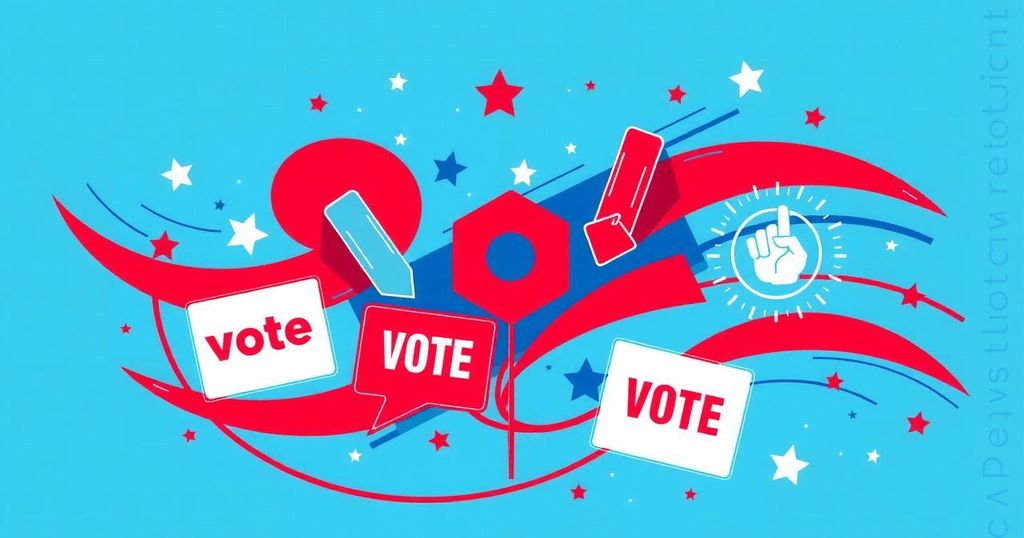The Secret of the Perfect Political Slogan

- Political campaigns require catchy slogans to engage voters.
- Chris Bruni-Lowe claims to have identified eight effective words.
- Successful slogans often resonate emotionally with voters.
- Compelling slogans may be borne from specific grievances.
- The rise of AI could change traditional political messaging.
Breaking Down Bruni-Lowe’s Effective Slogan Formula
Creating the perfect political slogan may seem elusive, yet strategist and pollster Chris Bruni-Lowe believes he has found the answer. In his new book, “Eight Words That Changed The World,” he recounts his extensive analysis of 20,000 campaign messages from different corners of the globe, identifying eight words that resonate with voters regardless of their political affiliations. Those key words are: people, better, democracy, new, time, strong, change, and together. But, it’s important to stress that simply using these words in any combination does not guarantee electoral success, as their effectiveness relies on the charisma and policies of the candidate behind them.
The Challenge of Crafting Memorable Slogans
Bruni-Lowe’s findings highlight a common thread among successful slogans, emphasizing that their power lies in the emotional connections they create. He points to Bill Clinton’s 1992 slogans, “Putting People First” and “For People, For a Change,” as prime examples of how the word “people” can effectively position a candidate as approachable and relatable. This strategy plays on the natural inclination of voters to associate terms like “better” and “together” with positive change without the need for lengthy policy documents. However, some critics might say that adhering too closely to this formula could lead to bland, generic slogans, which lack the zest to inspire or motivate the electorate.
The Evolution of Political Messaging
Interestingly, bespoke slogans can sometimes defy Bruni-Lowe’s rule by connecting with a specific and compelling grievance, like Boris Johnson’s “Get Brexit Done” which aimed to mobilize enthusiasm behind Brexit. This sort of targeted slogan may shine during one electoral cycle but could quickly lose relevance. Bruni-Lowe includes examples from his own career, such as crafting messages for Nigel Farage and Jakov Milatovic, which showed this principle in action. An example that deviates from typical sentiment is “Make America Great Again” (MAGA), which Trump claims to have crafted himself; its echoes in political history reach back decades. Regardless of its origins, MAGA has transformed into a potent brand that has fundamentally altered American political dynamics.
The Role of Technology in Future Campaigns
As we move toward the future, the landscape of political communication may shift dramatically with the rise of Artificial Intelligence. Campaigns are beginning to leverage AI to tailor messages specifically to the concerns of individual voters, an approach that poses potential risks to the spontaneity and catchiness of traditional slogans. This technological evolution is matched by advances in neuroscience that study public response to political marketing through brain activity. This data may one day redefine how elected officials engage with their constituents, potentially accelerating the disappearance of those annoyingly catchy election slogans we have known and loved. The early television campaign for Dwight D. Eisenhower, featuring the memorable jingle “I Like Ike,” serves as a nostalgic reminder of the past—a time when catchy tunes often dictated campaign success, but even that classic slogan seems to stray from the current formula suggested by Bruni-Lowe.
In summary, Chris Bruni-Lowe’s insights into the world of political slogans emphasize the nuanced balance between emotional resonance and the authenticity of candidates. While his identified eight effective words offer guidance for crafting impactful messages, not every rule fits every situation. As technology continues to evolve, the art of slogan creation may need to adapt or risk becoming irrelevant in the political arena.






